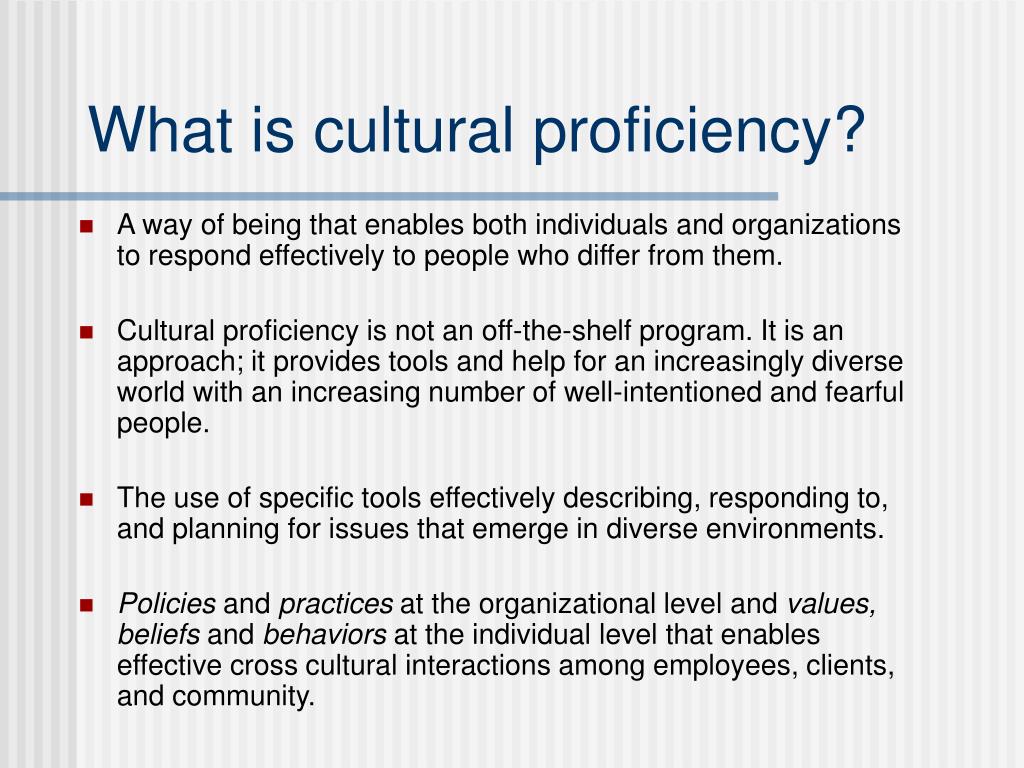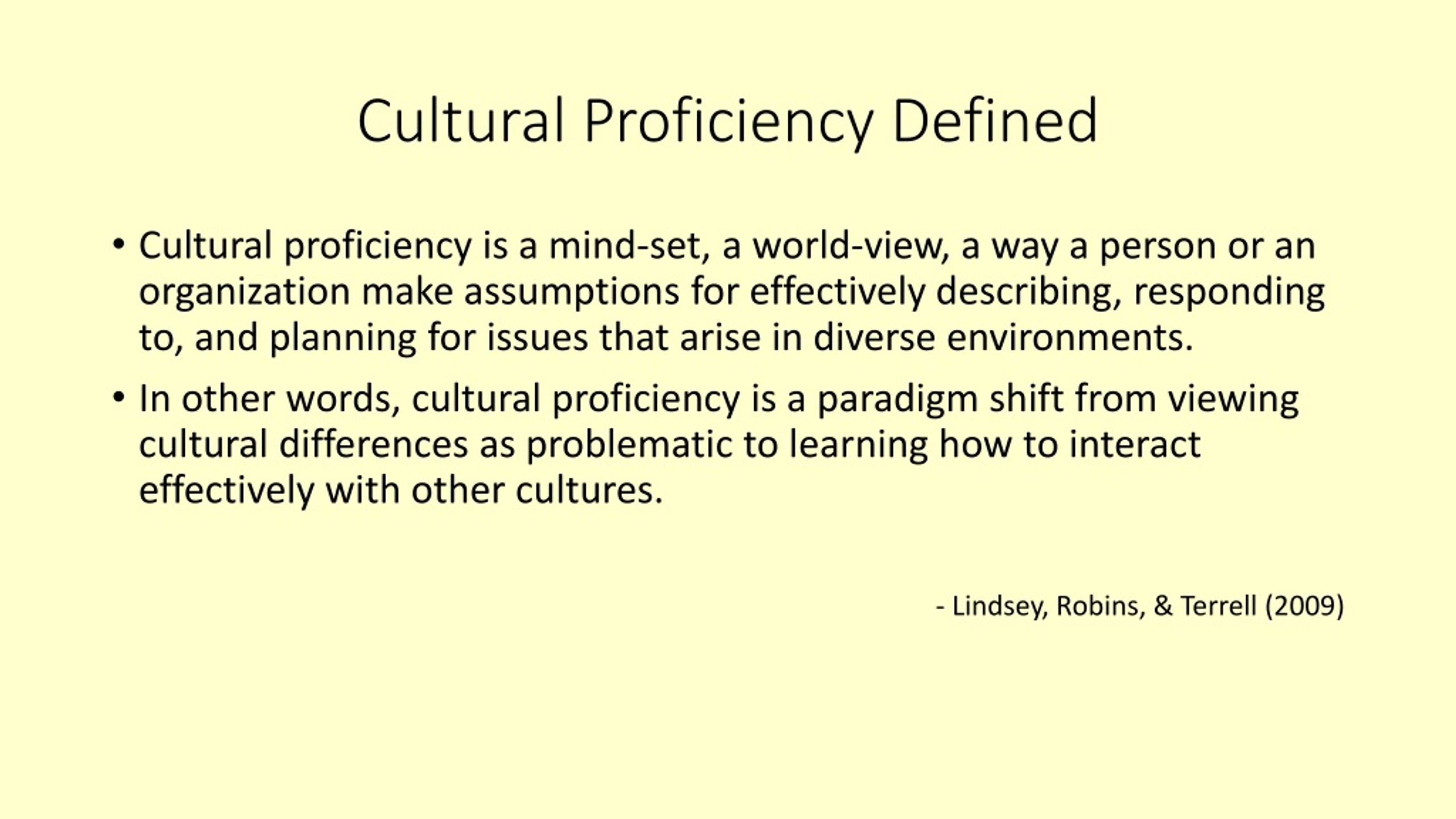Understanding Cultural Competence: Definition & Importance
Could understanding and appreciating the tapestry of human cultures truly unlock a more inclusive and effective world? The ability to navigate the complexities of cultural differences cultural competence is not just a desirable skill, but a critical asset in today's interconnected global landscape.
The pursuit of cultural competence is a multifaceted endeavor, one that touches every sphere of human interaction. It extends beyond mere awareness, delving into the realm of practical application and impactful change. Whether in the corporate boardroom, the classroom, the healthcare setting, or the halls of government, the ability to understand and effectively engage with diverse cultural perspectives is paramount. Cultural competence is, at its core, a skill set that facilitates meaningful communication and collaboration across cultural boundaries, paving the way for more equitable and successful outcomes for everyone involved.
Understanding cultural competence requires a deeper dive into its components. It is not a static concept; rather, it's a dynamic process of continuous learning and adaptation. Definitions vary, but the core tenets remain consistent: recognizing and respecting the beliefs, customs, norms, and values of people from diverse backgrounds. The CDC, for example, has crafted its own definition, acknowledging the specific needs within the health and human services sector. Cultural diversity, often intertwined with multiculturalism, celebrates the presence and contributions of various cultural groups within a society. It's a framework that values inclusivity and understanding, aiming to foster a sense of belonging for all.
The path toward cultural competence is often described as a continuum, with varying levels of proficiency. The framework, referenced by experts like Taunton, can range from "cultural destructiveness," where practices may inadvertently cause harm, to "cultural proficiency," where services are tailored to meet the specific cultural and linguistic needs of diverse groups. This transformative model, championed by Lindsey, Robins, and Terrell, focuses on both individual transformation and organizational change. It is a model for shifting the culture of the school or district.
Cultural competence is more than a collection of skills; it's a mindset, a commitment to lifelong learning, and an unwavering dedication to equity and inclusion.
Key Components of Cultural Competence
Cultural competence, often synonymous with intercultural competence, encompasses a range of skills, including cognitive, affective, behavioral, and linguistic abilities, all essential for effective communication with people from different cultures. Within organizations, it reflects in the policies and practices. In individuals, it manifests as values and behaviors that enable effective interaction.
- Alejandra Genevieve Oaziaza The Jacksons What You Should Know
- Sheinelle Jones Husband What Does Uche Ojeh Do Details Facts
The essence of cultural competence lies in recognizing and honoring the cultural differences that shape our world. This understanding extends beyond surface-level awareness, requiring us to delve into the nuances of diverse beliefs, customs, and values. It's about appreciating the unique perspectives that each culture brings to the table and recognizing that these perspectives influence how people perceive the world, interact with others, and make decisions. This ability to interact effectively with people from cultures different from ones own, especially through a knowledge and appreciation of cultural differences, is what sets culturally competent individuals apart.
Cultural competence is not a destination but a journey. It demands continuous learning, self-reflection, and a genuine commitment to inclusivity. One must continuously assess and evaluate their own assumptions, biases, and behaviors to ensure they are fostering an environment that embraces diversity and supports equity. It is a process of holding the vision of what can be and committing to assessments that serve as benchmarks on the road to success.
Cultural Competence in Action
Cultural competence is not just a theoretical concept; it's a practical skill that can be applied across various settings. Let's explore how it plays out in some key areas:
- Education: Culturally competent educators create inclusive classrooms that reflect the diversity of their students. They incorporate diverse perspectives into the curriculum, use culturally responsive teaching methods, and foster a sense of belonging for all learners. They understand that cultural backgrounds influence learning styles and tailor their approaches to meet diverse needs.
- Healthcare: In healthcare, cultural competence is crucial for providing equitable and effective care. Culturally competent healthcare providers understand that cultural beliefs and practices influence health behaviors and communication styles. They work to build trust with patients from diverse backgrounds, tailoring treatment plans to accommodate cultural preferences and promote health literacy.
- Business: In the business world, cultural competence is a vital asset for companies operating in a global marketplace. It enables businesses to understand and connect with diverse customers, build strong international teams, and navigate complex cross-cultural negotiations. Companies that prioritize cultural competence are better positioned to succeed in an increasingly diverse and interconnected world.
- Government: Governmental organizations must embrace cultural competency to effectively serve all communities. Policy decisions and public services should be crafted with an awareness of diverse cultural needs and sensitivities. This involves community engagement, language access, and culturally appropriate communication strategies to ensure equitable access to resources and opportunities.
Cultivating Cultural Competence
Developing cultural competence is a continuous process of learning, reflection, and adaptation. Here are some strategies to help you on your journey:
- Seek out diverse experiences: Engage with people from different cultural backgrounds. Attend cultural events, travel to new places, and participate in intercultural exchange programs. Immerse yourself in different cultures to broaden your understanding and challenge your own assumptions.
- Educate yourself: Learn about different cultures by reading books, watching documentaries, and taking courses. Study history, geography, and social customs. The more you know, the better equipped you will be to understand and appreciate cultural differences.
- Practice self-reflection: Regularly examine your own biases, assumptions, and stereotypes. Consider how your own cultural background influences your perspectives and interactions. Identify areas where you can improve and strive to become more aware of your own cultural lens.
- Develop communication skills: Learn to communicate effectively across cultural boundaries. Practice active listening, nonverbal communication, and adapting your communication style to suit different cultural norms. Be patient and willing to learn from your mistakes.
- Seek feedback: Ask people from different cultural backgrounds for feedback on your interactions. Be open to hearing their perspectives and using their input to improve your cultural competence.
- Advocate for change: Use your cultural competence to promote diversity and inclusion in your community. Speak out against discrimination, support inclusive policies, and mentor others who are on their journey to become culturally competent.



Detail Author:
- Name : Miss Bianka Hintz II
- Username : donnelly.shanon
- Email : cordia.nolan@gottlieb.org
- Birthdate : 1994-06-19
- Address : 43080 Haley Stream Apt. 497 Marqueschester, NJ 08970
- Phone : +16505230423
- Company : Schroeder-Champlin
- Job : Cutting Machine Operator
- Bio : Et qui quis sed corporis occaecati. Architecto omnis eos rerum. Et odio voluptatibus minus dolorum dolores impedit illum. Temporibus id dolorem qui velit rerum deserunt.
Socials
facebook:
- url : https://facebook.com/carmelo.abbott
- username : carmelo.abbott
- bio : Officia quia optio eaque. Sunt consequuntur nam ut doloribus rerum.
- followers : 2943
- following : 983
twitter:
- url : https://twitter.com/carmelo.abbott
- username : carmelo.abbott
- bio : Ad facilis et repellendus optio. Alias molestiae illo fuga eos molestiae. Temporibus dolorum dolor sunt ratione doloremque aspernatur quod et.
- followers : 6254
- following : 1507
instagram:
- url : https://instagram.com/abbott2005
- username : abbott2005
- bio : Quis eius nihil dolores et porro. Quibusdam aspernatur ducimus consequatur odio est.
- followers : 4153
- following : 384